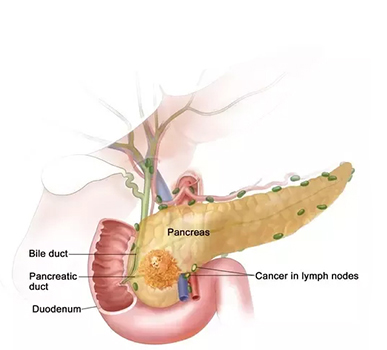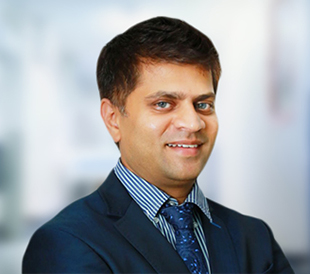Here, you will find information about signs and symptoms, causes and risk factors, types, diagnosis, staging and prevention about periampullary carcinoma.
Some of the signs and symptoms of periampullary carcinoma are as follows:
Loss of appetite and weight loss
Abdominal (belly) pain
Back pain
Pruritus, or skin itchiness, associated with the jaundice
Stomach upset and vomiting
Gastrointestinal bleeding
Pancreatitis (inflammation of the pancreas)
Pale, greasy stools
In general, cancer starts when cells develop changes (mutations) in their DNA. A cell's DNA contains the instructions that tell the cell what to do. The changes tell the cell to begin multiplying uncontrollably and to continue living when normal cells would die. The accumulating cells form a tumor that can invade and destroy normal body tissue.
Factors that can increase the risk of periampullary carcinoma include:
Age: It is more common in adults older than 70
Being male: Males are slightly more likely to develop than females
Inherited syndromes that increase cancer risk: Some gene mutations passed through generations of your family can increase your risk significantly
We are the specialist centre for periampullary carcinoma treatment in Bangalore.
Tumors that fall under this group include four main types and are as follows:
Pancreatic head/uncinate process tumors: It includes pancreatic ductal adenocarcinoma involving head and uncinate process of the pancreas.
Lower common bile duct tumors: It includes types of cholangiocarcinoma involving the intra-pancreatic distal bile duct.
Ampullary tumors: These originating from the ampulla of Vater itself.
Periampullary duodenal carcinoma
Screening tests can help detect periampullary carcinoma and some of the test include:
Specific imaging scans to look for the presence of a tumor inside the ampulla of Vater. These may be ultrasounds, or CT or MRI scans.
Endoscopy, in which a long, thin scope with a tiny video camera on the end is threaded down the mouth, through the esophagus and stomach, and into the duodenum to look at the ampulla. Also used to take samples to look for cancer cells.
Other tests might be done to look at the pancreatic and bile ducts to see if they are blocked. This might be done with endoscopic retrograde cholangiopancreatography (ERCP) or magnetic resonance cholangiopancreatography (MRCP).
In Bangalore, we are the best centre for periampullary carcinoma treatment.
Staging is a measurement of how far the cancer has spread. This is called staging. After all the tests have been completed and the results are known, it should be possible to tell what stage the cancer is.
Periampullary carcinoma is staged using the TNM system:
T (tumor): This describes the size of the original tumor.
N (node): This indicates whether the cancer is present in the lymph nodes.
M (metastasis): This refers to whether cancer has spread to other parts of the body.
Periampullary cancer is such a rare condition that experts aren't sure what steps, if any, can be taken to prevent it.
"CAN-C: Renowned centre for periampullary carcinoma treatment (in Bangalore)."
Make An Appointment Today
How Periampullary Carcinoma is treated?
If your healthcare providers determine that you have periampullary cancer, the standard approach is to remove the tumor from the ampulla of Vater. A complex operation called Whipple procedure (pancreaticoduodenectomy) is used. This procedure involves the removal of the tumor in the affected portion of the ampulla of Vater and the surrounding areas. This includes the head of the pancreas, duodenum, gallbladder, part of the common bile duct, nearby lymph nodes, and sometimes part of the stomach.
The procedure is performed using endoscopic instruments. Long, narrow tools and a tiny video camera are used to perform the procedure are inserted through small incisions (cuts) in the belly. This makes the procedure minimally invasive (there's not a lot of cutting and bleeding) and can shorten the recovery from the surgery. However, the most common way to perform the Whipple procedure is with an open belly.
For people who are not able to tolerate a Whipple procedure, a less complex operation or another procedure (such as using a laser to destroy the tumor) might be done, although it is not clear if these techniques can cure periampullary cancer.
We at CAN-C are here to provide the highest-quality periampullary carcinoma treatment in Bangalore.
Our Doctors
Dr. Dinesh M G
Specialty: Surgical Oncologist & Laparoscopic Oncosurgeon
Dr. Dinesh M G, is an efficient surgeon specialized in oncology committed to the care and improvement of quality of life of cancer patients. His exceptional surgical skills, teamwork and knowledge are laudable. He is skilled in performing various minimal access oncologic surgeries and has mastered complex open surgeries in the field of oncology.
Completing MBBS from KIMS, Bangalore followed by MS - General Surgery from JJM Medical College, Davangere and M. Ch - Surgical Oncology from Kidwai Memorial Institute of Oncology, he has a Fellowship in Minimal Access Oncology from Basavatarakam Indo American Cancer Institute.


